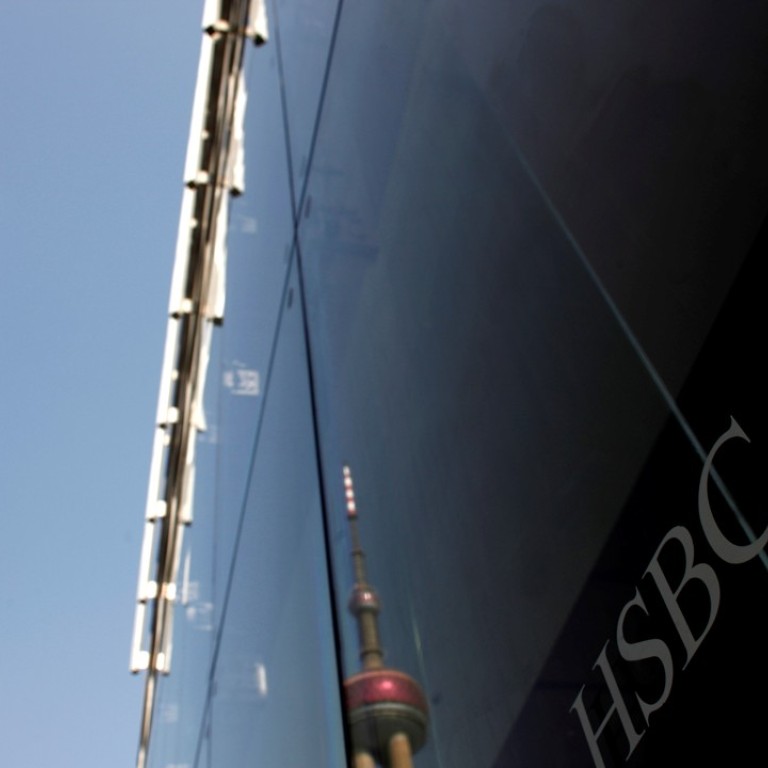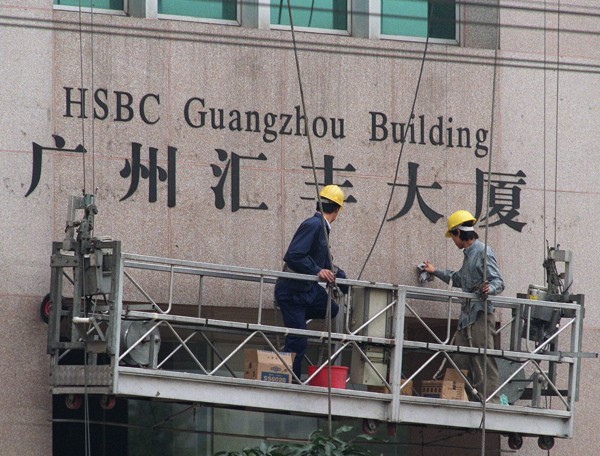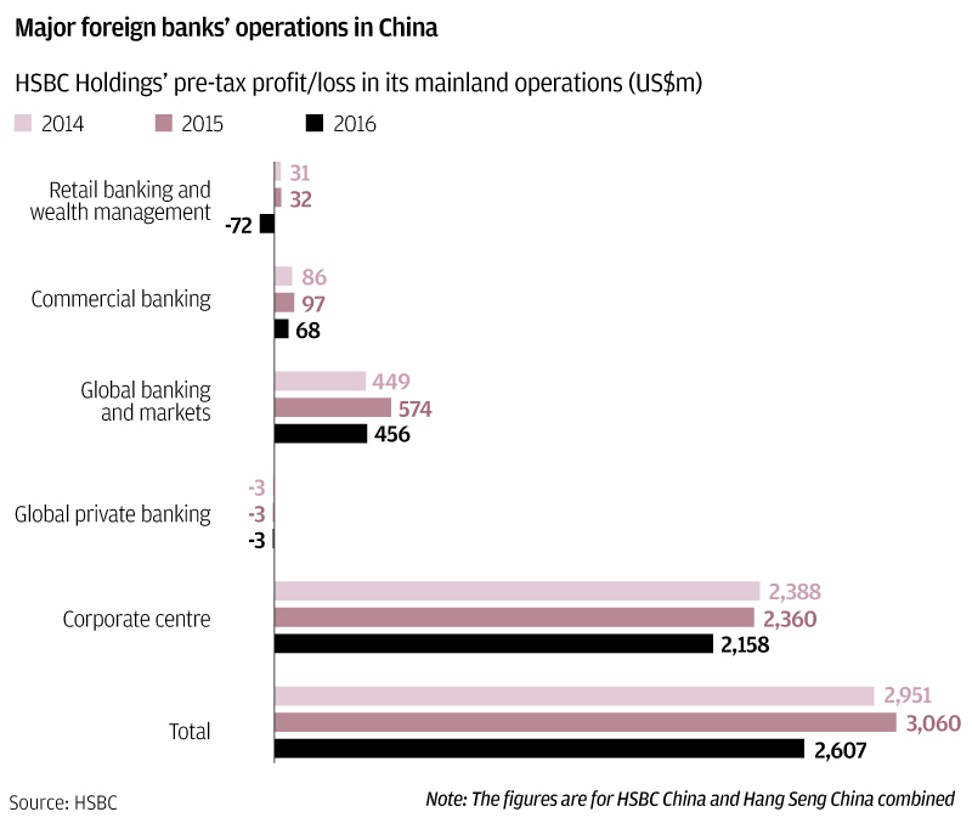
New | HSBC takes the long view with Guangdong strategy
It is building itself up as a universal bank in the province and to the broader community in Pearl River Delta
But HSBC stresses that it always knew the road to harvest would be long and treacherous, and is reiterating its commitment by pumping in more resources to expand services and hiring more staff this year.
This is despite the fact that the lender made a loss of US$72 million in retail banking and wealth management in China last year.
“The [Pearl River Delta] plan is on track,” said Kevin Martin, HSBC’s Asia-Pacific head of retail banking and wealth management.
“What we’ve said is that in Guangdong we want to be a full universal bank. We feel that we are able to compete on the ground there, using digital capabilities, to bank the communities in Guangzhou and Shenzhen, and also the surrounds.”

“It [the loss] largely reflects investment,” Martin said. “If you look at the underlying HSBC business in China retail, it is profitable. But as you invest into the future, your earnings are a tail.”
HSBC’s choice of Guangdong and the Pearl River Delta to front its China strategy is hardly surprising, given their proximity to Hong Kong, which benefits the bank as far as Chinese consumers’ recognition of the HSBC brand goes.
The bank, first called Hongkong and Shanghai Bank, was established 152 years ago in Hong Kong and a month later in Shanghai.
“[Guangdong residents] don’t consider us to be the Bank of China, but when they look at their international needs ... they know us and that we are well placed to meet those needs. And obviously for those who come to Hong Kong regularly, it makes sense,” Martin said.
If you look at the underlying HSBC business in China retail it is profitable, but as you invest into the future, your earnings are a tail.
In Guangdong, HSBC has expanded its premier offering to mass affluent customers, grown out its mortgage book (though this has been affected by the Guangdong government’s cooling measures) and in December last year announced it would launch credit cards.
Martin said there were 150,000 HSBC credit cards in the market by April, or 5 per cent of the three-million-card target it aims to issue over three to five years that he announced in December when the card was launched. Currently, 600 million to 700 million credit cards are issued in China.
For 2017, the bank will continue to roll out new initiatives in the region that caters to the broader market, a strategy it believes sets it apart from its foreign rivals, which mainly focus on wealthy Chinese and expatriate consumers in the largest cities.
Martin said the group would launch personal loans for the mass market in the second half of the year, with growth for the offering likely only in 2018.

“Life is not easy for foreign banks in China. They don’t have the branch network to compete with the local banks and this means it is very hard for them to get deposits to use for other lines of business.”
HSBC has the largest branch network among foreign banks in China, with about 170 branches, more than 100 of which are in the Pearl River Delta, but this is still dwarfed by its domestic Chinese competitors.
“If a customer needs multiple branch visits across large swathes of China, then they will stay with one of the big banks. That would be natural. But as customers’ needs, particularly those of millennials in China, are becoming about mobile and cashless types of transactions, then their need for physical locations reduces,” Martin said.
This story has been amended to correct a reference to HSBC credit cards in circulation in mainland China. The bank had 150,000 cards in circulation as of the start of April, 2017.

